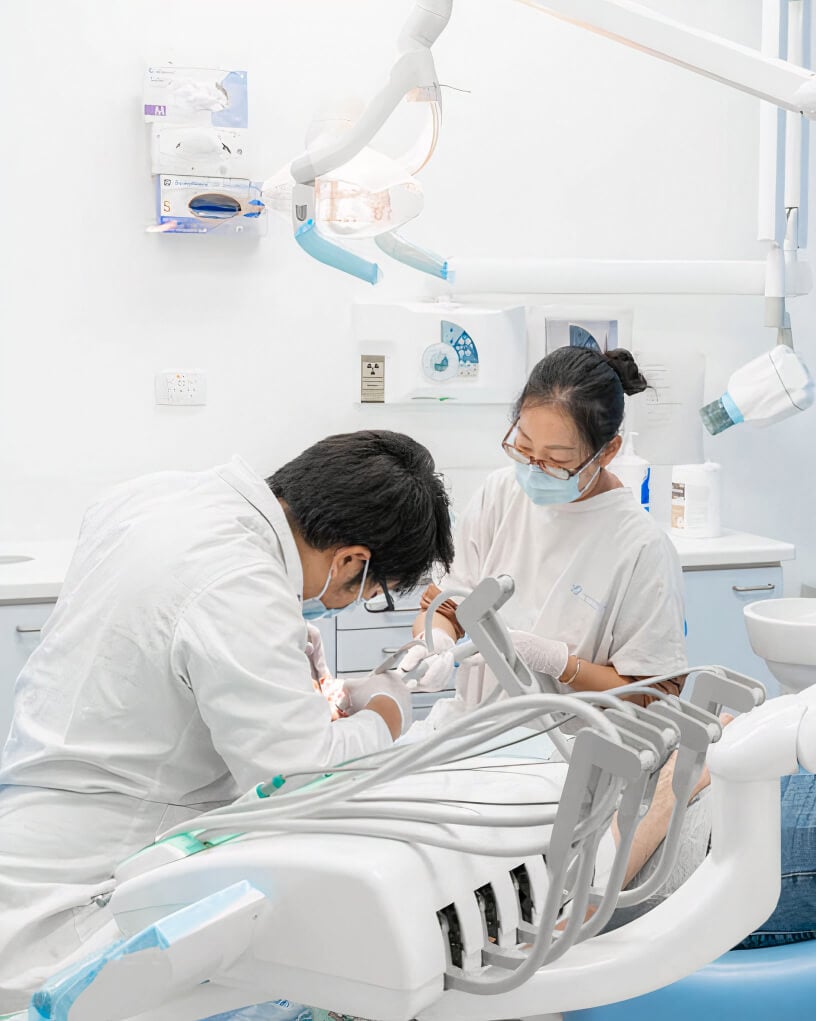What are the signs that you need a dental checkup?
- Bleeding and receding gums
- Toothaches and sensitive teeth
- Bumps and sores in your mouth
- Dry mouth
- Chronic bad breath
Oral health is an important aspect of our overall well-being, but it is often overlooked. While regular brushing and flossing are essential to maintaining good oral hygiene, it is also important to visit your dentist regularly for a dental checkup. However, many people tend to avoid dental checkups due to fear, time constraints, or lack of awareness of when to visit the dentist. Remember that there are many factors that affect the cost of these check-ups so don’t let it stop you from seeing your dentist.
In this blog post, we will discuss five signs that indicate you may need a dental checkup in Drummoyne. Keep reading to learn more!
Bleeding and Receding Gums
Bleeding gums can be caused by several factors such as gum disease, brushing too hard, or a vitamin deficiency. If you notice blood on your toothbrush or when you spit after brushing, it’s important to see your dentist. Your dentist can examine your gums and recommend appropriate treatment to prevent further damage.
On the other hand, receding gums are another condition that is often with gum disease, too. This condition makes your teeth more prone to cavities and sensitivity since the gum tissue slowly pulls away from your teeth.
When you notice any of these two conditions in your gums, be sure to schedule a dental check-up with your dentist here in Drummoyne. They’re the best people who can help you overcome these issues with the proper gum treatment plan.
Toothaches and Sensitive Teeth

Do you often experience toothaches? How about a tingling sensation when you take in hot or cold drinks? These are evident signs that you owe your dentist a visit.
Remember that prolonged toothaches or teeth sensitivity may already require medical attention. If your toothache doesn’t go away after a few days, you might be having a cavity, broken tooth, abscess, and other underlying reasons that only a professional dentist can answer.
Moreover, if you have painful reactions to hot and cold food or drinks due to your sensitive teeth for quite a long time, it is better that you have them examined as well for proper treatment. Shrugging it off won’t make it go away. Instead, untreated sensitive teeth may result in tooth decay, fractured teeth, or even gum disease.
Bumps and Sores in Your Mouth
Having bumps and sores in your mouth is never normal. If you notice having some—or even a single one—that doesn’t go away even after 1-2 weeks like canker sores that mostly disappear on their own, consider getting the opinion of a medical specialist.
Mouth bumps and sores that last for more than two weeks are often an indication of fungal infections and oral lesions that are much more serious than canker sores. That said, it is still important to see a dentist for proper treatment and recovery.
Dry Mouth

Dry mouth is a condition that occurs when there is a reduced flow of saliva in the mouth. Saliva is essential for maintaining good oral health as it helps to neutralize the acid produced by bacteria, remineralize tooth enamel, and wash away food debris and bacteria from the mouth. When there is a decreased flow of saliva, it can lead to various oral health problems such as bad breath, tooth decay, and gum disease.
If you have a dry mouth, it is important to visit a dentist as they can help determine the underlying cause of your dry mouth and recommend appropriate treatment. Dry mouth can be caused by several factors such as medication side effects, certain medical conditions, or lifestyle habits. Your dentist can examine your mouth and ask about your medical history to determine the cause of your dry mouth.
Chronic Bad Breath
If you have bad breath, also known as halitosis, it could be an indication of an underlying oral health problem. While bad breath can be caused by a variety of factors such as certain foods or smoking, it can also be a symptom of more serious oral health issues such as gum disease, tooth decay, or oral infections.
Visiting your dentist is important if you have bad breath as they can help identify the underlying cause of your halitosis and recommend appropriate treatment. Your dentist can examine your mouth, teeth, and gums for signs of decay, infection, or inflammation, all of which can contribute to bad breath. They may also take X-rays to check for underlying dental problems that may be causing your bad breath.
Key Takeaway
Those were just some signs that you need a dental checkup in Drummoyne as part of oral care. As the folks say, “Health is wealth.” That is true and so is, “Prevention is better than cure.”
If you want a more extensive treatment that includes enhancement of your teeth, book an appointment with Our Dental Care’s cosmetic dentist in Sydney for healthier and better-looking smiles. Our Dental clinic is located at Drummoyne, New South Wales. You can also send us a message for appointments or any inquiries and we’ll be happy to stay in touch with you.







